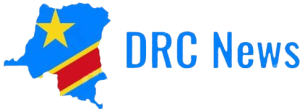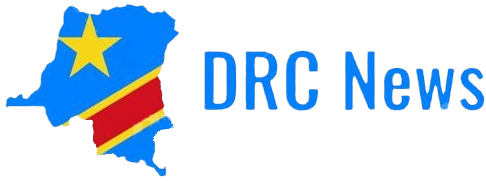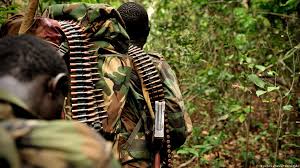KAMPALA, Uganda — An insurgent group founded in Uganda but now based in eastern Democratic Republic of Congo has grown increasingly deadly after receiving money from the Islamic State, according to defectors and researchers tracking the group.
Last year, the U.S. Treasury Department imposed sanctions on four individuals in South Africa for transferring money on behalf of the Islamic State, including to armed groups in Congo and Mozambique. In January, U.S. troops killed Bilal al-Sudani, head of a major regional Islamic State office, in a raid in northern Somalia.
Sudani’s office was most notorious for funneling cash to the Islamic State in Afghanistan, which bombed U.S. troops at Kabul airport in 2021. It also sent hundreds of thousands of dollars to the rebel Allied Democratic Forces (ADF) in Congo, according to a report released Monday by the Texas-based Bridgeway Foundation, which works to end conflicts.
In the past year, the ADF has blown up churchgoers, directed deadly suicide bombings, organized a jailbreak that freed hundreds, and beheaded and burned villagers alive. In March alone, the group killed 150 people, said the Kivu Security Tracker, a research group partly funded by Bridgeway that tracks violence in eastern Congo. Former members of the ADF told The Washington Post they had witnessed the execution of senior leaders who opposed the Islamic State alliance; they also described increasing violence, especially against local villagers.
The report on the group’s finances, published by Bridgeway and George Washington University, and provided exclusively to The Post before its public release, sheds light on the evolution of Islamic State regional affiliates since the group lost its territory in Iraq and Syria. Local affiliates such as the ADF operate independently but can receive money and ideological guidance from the Islamic State’s regional branches.
“The money means innocent people are dying horrific deaths,” said Tara Candland, one of the report’s authors.
The ADF was founded in 1995 in Uganda as an armed Islamist group, but a crackdown in the early 2000s forced the fighters to flee across the border into the mountainous forests of eastern Congo. In 2021, the ADF was accused of orchestrating deadly bombings in the Ugandan capital of Kampala that killed six people. Uganda sent troops into eastern Congo, where they remain battling the insurgent group.
Bridgeway’s access to the defectors, whose accounts informed the report on the ADF’s financing, is the result of the foundation’s long history of working with the Ugandan military and Congolese authorities. Bridgeway’s coordination with them attracted attention because security forces from both countries are accused of rights abuses that include torture and murder. A decade ago, the foundation funded private military trainers to work with Ugandan soldiers hunting Joseph Kony, the commander of the Lord’s Resistance Army, a rebel group infamous for kidnapping children and killing civilians.
Bridgeway said it does not fund the security forces, but promotes defections from rebel groups and helps deradicalize and reintegrate low-level members, including women and children, who escape or are captured.
The Post confirmed several details of the Bridgeway report with a senior Somali intelligence official who had knowledge of the 2021 conviction of a Somali financier who funneled $400,0000 to the Islamic State. A U.S. official working on counterterrorism financing told The Post, “We know funds were going [from Somalia] to South Africa, the DRC, Uganda.”
“It’s early days in Mozambique and the DRC,” he said, using the initials for the Democratic Republic of Congo. The groups were trying to establish themselves, he said. The funding “was a lifeline for them, buying time to establish localized funding mechanisms.”
Both officials spoke on the condition of anonymity because they were not authorized to speak to the media.
It’s unclear exactly when the ADF formalized its alliance with the Islamic State. The ADF received its first documented financial transfers from the Islamic State in late 2017, after months when it launched very few attacks, the report said. Its attacks have grown more deadly and more frequent since then.
Four recent defectors, interviewed separately in meetings arranged by Bridgeway, said the Islamic State alliance was formed after the ADF founder was arrested in 2015 and the new leader, Musa Baluku, sought to cement his position. Baluku cracked down on dissent. One 16-year-old girl, who said ADF fighters kidnapped her six years ago, said she saw fighters behead three senior leaders who rejected the Islamic State alliance, including the founder’s son. Three other defectors confirmed her account. All spoke on the condition of anonymity for fear of reprisals.
“They used to say Islamic State was supporting us and our cause and show us films from them,” she said. “Once they brought us big veils and said they were a gift from Islamic State.”
Two pivotal young leaders — Tanzanian Ahmed Muhamood, or “Abu Waqas,” and Ugandan Meddie Nkalubo, nicknamed “the Punisher” — appeared soon after, defectors said. Muhamood presented himself as an Islamic State emissary, displaying the flag and showing propaganda videos.
In 2017, the same year Islamic State financier Waleed Zein in Kenya, who would come under U.S. sanction, sent the first documented cash transfer to the ADF, Muhamood appeared in a video calling for recruits to the Islamic State. Nkalubo set up a propaganda machine and financial networks. The 16-year-old girl said Nkalubo also brought a drone to accompany fighters.
“The Punisher was good with the computer,” she said.
In 2019, Islamic State central claimed its first attack on behalf of the group, and Baluku appeared in a video reaffirming the previously unpublicized alliance. In October 2020, the Islamic State’s central Amaq News Agency asserted responsibility for an attack by ADF fighters on an army barracks and the Kangbayi prison in the eastern city of Beni. The fighters freed 1,300 inmates.
A year later, Baluku declared the ADF name dead in favor of Islamic State-Central Africa Province, a designation it initially shared with rebels in Mozambique, where Islamist insurgents have killed thousands and halted a multibillion-dollar gas project.
In March, the United States put a $5 million bounty on Baluku’s head under the Rewards for Justice program.
The ADF has trained fighters now active in Mozambique, according to a report by researcher Dino Mahtani, which circulated privately among U.N. Security Council members. Last year Mozambique’s insurgents launched at least 415 attacks, the highest number ever, the report said.
CREDIT: Washington Post


